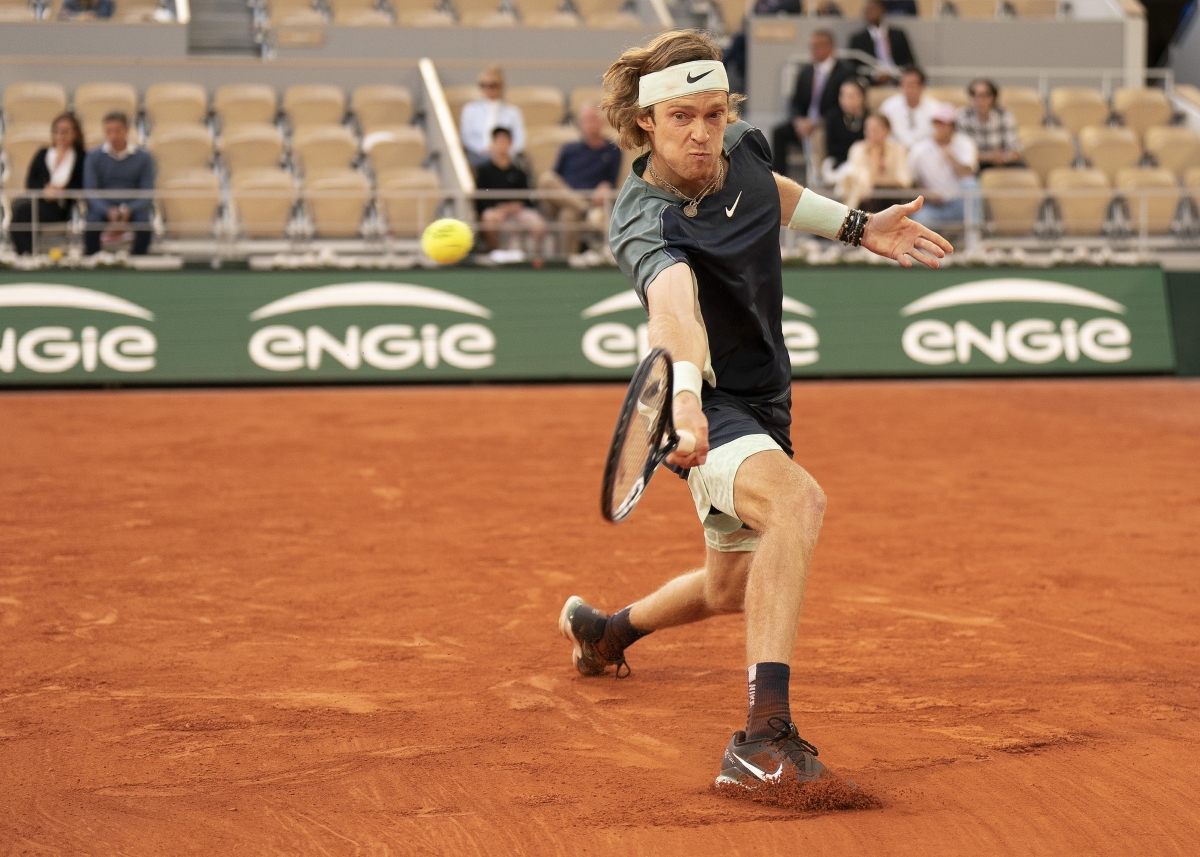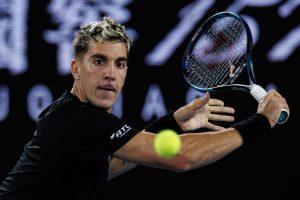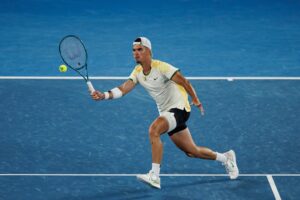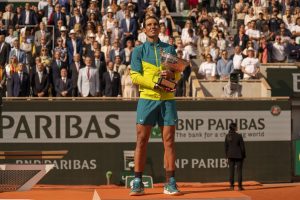Andrey Rublev lost in the second round in Bastad against Thiago Agustin Tirante. He was the defending champion and with this loss, Rublev will fall out of the Top 8 for the first time since 2022. He would have been outside the Top 10 without the Madrid title. Fortunately, he’s defending almost no points in Canada and Cincinnati so he will have a chance to improve his ranking before the US Open, where he’s defending quarterfinal points.
This was Rublev’s fourth consecutive loss and the second time this year that he has lost four consecutive matches. What’s worse is that all of these losses have come against players ranked outside the Top 20. The last time Rublev lost four or more consecutive matches to players ranked outside the Top 20 before this year was in 2018. His confidence is getting lower and lower with each bad loss.
Rublev kept his anger concealed for most of the match against Tirante and didn’t implode or explode but he looked so sad and lost out there. His horrible slide this year in terms of mental state and results has been shocking to witness.
Plausible Causes Of Andrey Rublev’s Slump
I am no expert and am simply speculating on why Andrey Rublev might have gone into this slump in the first place. Rublev was a No.1 junior and Junior Grand Slam winner. He has been very close friends with Daniil Medvedev since their junior days and he has said that he used to have the edge over Medvedev when they were juniors together. Rublev had quite a rapid rise up the rankings, initially after turning professional. He won his first ATP title two years after making his ATP debut. By the age of 23, in 2020, he had won another five titles, was in the Top 10 and had qualified for his first Tour finals.
In 2021, fans christened him “The 500 King” because of his 20-match winning streak at the 500 level. At this stage, it’s not too much of a stretch to think that he hoped to go on to win bigger titles and compete for Slams. However, around this time, he seemed to plateau and started coming in for criticism. There was a general feeling that he was one-dimensional and limited, that his plan A was to hit the ball hard and his plan B was to hit the ball harder. 2021 was also the year Medvedev won the US Open. I’m speculating again here, but it does seem plausible that, however much Rublev was happy for his friend’s success, there might have been a part of him that was thinking, “That should be me.”
Fast forward a couple of years and Rublev has managed to win two Masters 1000 titles and has amassed several quarterfinal appearances at Slams. But, even before his slump this year, he was showing increasing signs of unhappiness with his performance on the court. The 2022 French Open against Marin Cilic, was the first time I remember seeing him hitting himself with a racket, and those incidents have only increased and worsened since.
Impact of a Strict Upbringing and Hyper-Competitive Sports Culture
Rublev has previously stated that his mother was very strict with him. In addition to that, there are some unhealthy hyper-competitive sports subcultures found all around the world that young adults are raised in. A lot of professional players spend their childhoods committed to constantly improving and competing at the highest levels of a sport in hopes of being true professional athletes. They may have spent a huge chunk of their childhood in special camps, academies or leagues where their entire sense of self revolves around being the best at their sport. And, they may be pushed by their parents, coaches and trainers in a way that ties their athletic performance to their sense of self-worth.
Things like emotional regulation and maturity may not be truly tested until much later in their life. They may struggle to adapt to situations where they are no longer the most dominant player. Losing to someone lower than them goes right to the core of who they are as a person and their sense of self-worth takes a serious hit. From watching several of Rublev’s interviews, I get the impression, that his view of self-worth is closely tied to tennis.
Or it can also be just a simple case of competitiveness. He is fiercely competitive and puts himself under too much pressure to do well. He is so passionate about tennis and competing at this level can be frustrating and people deal with those things differently. Some can rage on the inside, others have to let it out. The problem is his behavior is getting worse and he needs to deal with it badly.
Changes That Might Help
Putting Less Pressure on Himself
Andrey Rublev won the Madrid Open when he was ill and played some of his best tennis this year. Maybe he won because he put less pressure on himself and did not have the energy to get angry and frustrated. In Madrid, he was sick and focused solely on getting through the point, not winning or losing. He needs a clear mind. His illness just happened to provide that for him temporarily. He was in “just get through this next point” mode. It’s like climbing a mountain. You have to think of it one step at a time. If you think about the peak, it becomes daunting and nearly impossible.
Taking a Break And Consulting a Professional Help
It’s clear as daylight that the anger is not helping him in any way. His best stretch of tennis was when he calmed down, smiled more, and just played the game. He needs a lot of guidance and self-reflection to get his head straight. Rublev is old enough to seek professional help to deal with these outbursts. His behaviour is getting increasingly worrisome and it’s not good for him or the audience. It may not be his fault, but it’s now his responsibility to work on it.
He has a sports psychologist but maybe he needs to work with a mental health psychologist to try to break out of the negative cycle that he has got himself into. That may involve taking a break from tennis for some period. He is rich and can afford to take a break and find the appropriate therapy. If he keeps going like this, there’s a chance it only gets worse and he ends up hating the sport.
At some stage, he may also need to work with his coaching team on trying to address some of the limitations in his game. Maybe even a change of coach who can help him to improve his net game and bring more variety. However, his mental state appears to be the greatest limiting factor this season, and it should be prioritized over anything else.
Main Photo Credit: Susan Mullane-USA TODAY Sports






